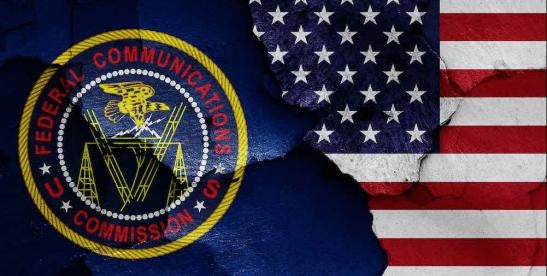The Federal Communications Commission (FCC) voted on April 25, 2024 to reinstate its net neutrality rules by reclassifying broadband internet access service (BIAS) as a “telecommunications service” under Title II of the Communications Act (Act). The FCC’s rules now afford stand-alone BIAS providers with the same statutory protections under Section 224 of the Act for accessing poles and other utility infrastructure that cable and telecommunications providers receive. This could be particularly important considering the anticipated deployments driven by the Broadband Equity And Deployment (“BEAD”) program and other subsidy programs.
Section 224 of the Act governs the FCC’s regulation of attachments by cable or telecommunications service providers to poles, ducts, conduits, or rights-of-way owned or controlled by investor owned utilities. It in turn authorizes the Commission to prescribe rules to ensure that the rates, terms, and conditions of pole attachments are just and reasonable; requires utilities to provide nondiscriminatory access to their infrastructure; provides procedures for resolving pole attachment complaints; governs pole attachment rates for attachers; and allocates make-ready costs among attachers and utilities.
Recognizing the importance of pole attachments to expanding high-speed internet access and communications networks across the country – especially amid the largest ever federal investment in broadband deployment – the FCC has, over the years, undertaken a series of reforms to its pole attachment and access rules. That includes, most recently, in December 2023, when the FCC adopted new and expedited procedures for resolving pole attachment disputes and increasing transparency during the make-ready process, as well as restrictions on the allocation of pole replacement costs.
Until now, however, only cable and telecommunications providers – not broadband-only internet service providers – were entitled to the pole access protections guaranteed by Section 224 of the Act and the FCC’s pole attachment rules. The FCC even noted that limitation in a footnote in its December 2023 pole attachment order. But with the new classification of BIAS as a telecommunications service, according to the FCC, BIAS-only providers now will “receive the same statutory protections for pole attachments guaranteed by section 224 of the Act that providers of cable and telecommunications services receive.”
This means that in the 27 states subject to the FCC’s pole attachment rules, BIAS-only providers will now be guaranteed reasonable and non-discriminatory access to poles, ducts, conduits, and rights-of-way owned by investor-owned utilities based on the FCC’s pole attachment rates, terms, and conditions.
While the FCC’s regulation of pole attachments for several decades has been fundamental to the deployment and expansion of competitive networks, there are serious limitations to the FCC’s authority to regulate pole access and facilitate deployments in unserved areas. The FCC’s authority extends only to poles owned by investor-owned utilities—not the poles of government-owned and cooperatively organized utilities (many of which own the poles in the exact areas where fiber deployments are needed most). Nonetheless, a handful of states, on their own, have attempted to fill this regulatory void in the federal law by regulating attachments to municipal-utility and coop poles. And, as the FCC has stated, its application of Section 224 to BIAS-only providers will promote deployment, investment, and availability of broadband services for consumers:
[R]estoring section 224 rights and easing the burdens of pole access is likely to ensure that the number of BIAS-only providers does not artificially shrink due to inequitable treatment under the law, and that equitable regulatory treatment of BIAS-only providers, particularly with regard to regulations designed to speed network deployment, will also increase competition, ultimately benefitting consumers and assisting the Commission’s goal of achieving universal service.
***
The FCC’s Net Neutrality Order will go into effect 60 days after publication in the Federal Register (which has not yet occurred). That said, the rules likely will face several legal challenges and political pushback as they did in years past.






 i
i


